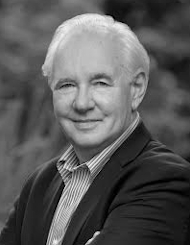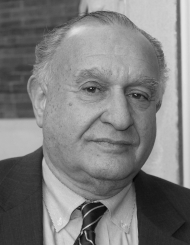
Virtual Event: Alexander Keyssar
presenting
Why Do We Still Have the Electoral College?
in conversation with MILES RAPOPORT
DateJul
31
Friday
July 31, 2020 7:00 PM ET |
LocationJoin our online event (or pre-register) via the link in the event description.
|
Tickets
Free - $5 contribution suggested at registration
|
Harvard Book Store's virtual event series welcomes ALEXANDER KEYSSAR—the Matthew W. Stirling Jr. Professor of History and Social Policy at Harvard's Kennedy School of Government and author of the The Right to Vote: The Contested History of Democracy in the United States—for a discussion of his latest book, Why Do We Still Have the Electoral College? He will be joined in conversation by MILES RAPOPORT, Senior Practice Fellow in American Democracy at the Harvard Kennedy School's Ash Center for Democratic Governance and Innovation.
Contribute to Support Harvard Book Store
While payment is not required, we are suggesting a $3 contribution to support this author series, our staff, and the future of Harvard Book Store—a locally owned, independently run Cambridge institution. In addition, by purchasing a copy of Why Do We Still Have the Electoral College? on harvard.com, you support indie bookselling and the writing community during this difficult time.
About Why Do We Still Have the Electoral College?
Every four years, millions of Americans wonder why they choose their presidents through the Electoral College, an arcane institution that permits the loser of the popular vote to become president and narrows campaigns to swing states. Most Americans have long preferred a national popular vote, and Congress has attempted on many occasions to alter or scuttle the Electoral College. Several of these efforts—one as recently as 1970—came very close to winning approval. Yet this controversial system remains.
Alexander Keyssar explains its persistence. After tracing the Electoral College’s tangled origins at the Constitutional Convention, he explores the efforts from 1800 to 2020 to abolish or significantly reform it, showing why each has failed. Reasons include the complexity of the electoral system’s design, the tendency of political parties to elevate partisan advantage above democratic values, the difficulty of passing constitutional amendments, and, importantly, the South’s prolonged backing of the Electoral College, grounded in its desire to preserve white supremacy in the region. The commonly voiced explanation that small states have blocked reform for fear of losing influence proves to have been true only occasionally.
Keyssar examines why reform of the Electoral College has received so little attention from Congress for the last forty years, and considers alternatives to congressional action such as the National Popular Vote Interstate Compact and state efforts to eliminate winner-take-all. In analyzing the reasons for past failures while showing how close the nation has come to abolishing the institution, Why Do We Still Have the Electoral College? offers encouragement to those hoping to produce change in the twenty-first century.
Praise for Why Do We Still Have the Electoral College?
“Comprehensive and full of historical insight. Even specialists in political and constitutional history will encounter surprises . . . As another presidential election looms, [it] deserve[s] a wide readership.”―Eric Foner, London Review of Books
“America’s greatest historian of democracy now offers an extraordinary history of the most bizarre aspect of our representative democracy—the electoral college. In a clear and complete account of this anomaly’s origins and how it has survived, we can see the outlines for how it might be replaced, or at least improved upon. This is a brilliant contribution to a critical current debate, just in time to help guide effective reform.” —Lawrence Lessig, author of They Don’t Represent Us
“This is a powerful work twice over. Its contributions to the debate over the Electoral College’s effects on our politics are profound. No less important, though, are the fascinating accounts of the changing rules governing presidential elections since the nation’s founding, a turbulent and largely unknown history. Keyssar’s lucid scholarship does justice to the past while it forcefully informs the present.” —Sean Wilentz, author of No Property in Man

Harvard Book Store’s award-winning event series continues online! Named "Best of Boston: 2020 Best Virtual Author Series" and "2021 Best Virtual Author Series" by Boston magazine.
(617) 661-1515
info@harvard.com
Media Inquiries
mediainquiries@harvard.com
Accessibility Inquiries
access@harvard.com
Classic Totes
Tote bags and pouches
in a variety of styles,
sizes, and designs, plus mugs, bookmarks, and more!
Shipping & Pickup
We ship anywhere in the U.S. and orders of $75+ ship free via media mail!
Learn More »Noteworthy Signed Books: Join the Club!
Join our Signed First Edition Club (or give a gift subscription) for a signed book of great literary merit, delivered to you monthly.
Learn More »










